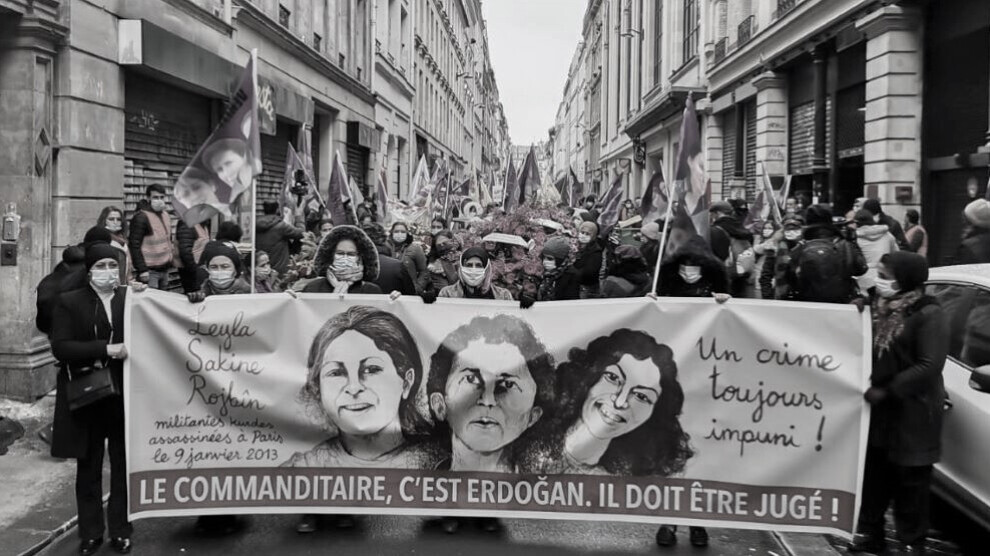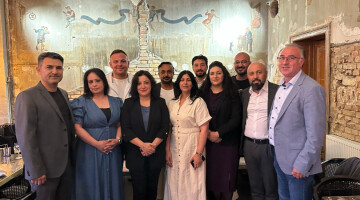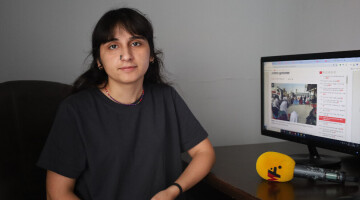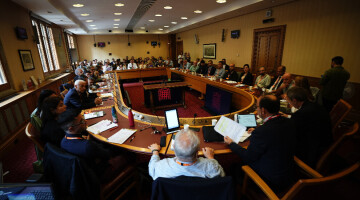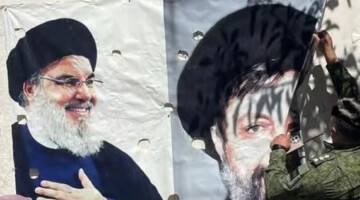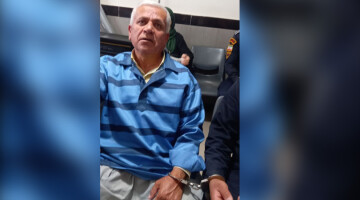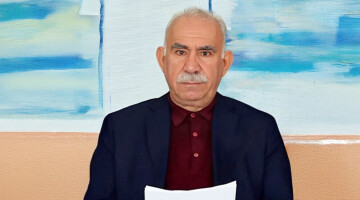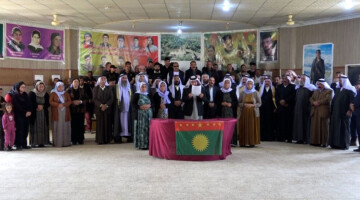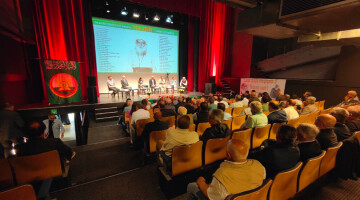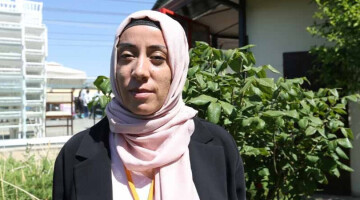On 9 January 2013, PKK (Kurdistan Workers’ Party) co-founder Sakine Cansız (Sara) was assassinated by the Turkish secret service MIT in the heart of Paris, together with KNK (Kurdistan National Congress) representative Fidan Doğan (Rojbîn) and Kurdish youth activist Leyla Şaylemez (Ronahî).
On the occasion of the ninth anniversary of the triple murder, the Executive Committee of the Kurdistan Workers' Party (PKK) issued a statement which includes the following:
"Nine years have passed since our companions Sakine Cansız (Sara), Fidan Doğan (Rojbîn) and Leyla Şaylemez (Ronahî) were murdered in Paris. We remember our revolutionary friends with respect and gratitude and reaffirm our promise to create their goal of a free Kurdistan on the line of women's liberation.
This massacre was perpetrated by the Turkish colonial state. The assassin, Ömer Güney, was an agent of MIT. The order for the bloodshed in the middle of Paris was decided by the government of then Prime Minister Tayyip Erdoğan. The MIT could not have made the decision for such a massacre, for which the Turkish state would have faced charges and sanctions, on its own. In any case, the names of 22 PKK leaders who were to be killed had been published months earlier.
Comrade Sara was targeted because she was a founding member of the PKK and a pioneer of the women's liberation movement. She was also attacked because of the fervent love of the people for her resistance in prison.
The Turkish state considers Rêber Apo (Abdullah Öcalan) and the PKK its biggest enemy. Inevitably, this puts all the founding members on the target. The assassination of Comrade Sara is an act of revenge against the Kurdish people's struggle for freedom. Killing great revolutionaries like Sakine Cansız, Fidan Doğan and Leyla Şaylemez shows the abysmal hostility towards the existence of the Kurdish people. The most important ideal of the Turkish state is the destruction of Kurdish existence. For this very reason, those who contribute to strengthening the existence of the Kurds are considered the greatest enemies.
The fact that the Turkish state took great risks to kill Sara and her friends shows the full extent of their struggle. Sara joined the Apoists [PKK founding group] as a rage of the people of Dersim and co-founded the PKK. Both are a sign of the greatest courage. Participating in a resistance like this and taking responsibility for the struggle makes the nature of Sara's personality all too clear.
This personality, with all its special qualities, broke out in the resistance of Diyarbakır prison number 5. Sara's struggle gave courage to all her friends in her cell block and became the greatest source of morale for the prison resistance. Despite severe repression and torture, she did not deviate a single millimeter from her will and attitude. No oppression or cruelty could compromise her position. This fact became clear when she spat in the face of the enemy.
Sara took part in this struggle because she loved her country and her people. She fought for freedom until the last breath of her life and was always in loving contact with her friends and her party. She carried in her heart and on her shoulders the feelings of women who suffered 5,000 years under patriarchy and dedicated every moment of her life to the success of the struggle. She always led the women's freedom struggle with passion and enthusiasm. Like a volcano, her fighting spirit exploded in the face of the enemy. She spent her entire existence transmitting love and positive energy to those around her. Even those who knew her only for a short time felt a deep love and respect for her. Sara will always be remembered in the freedom struggle of the Kurdish people and women. Her name stands as a symbol of this struggle, she will always be an immortal.
Comrade Rojbîn was a sincere companion full of love. She had to migrate to Europe against the background of the de-Kurdification policy of the areas west of the Euphrates. She engaged herself on a diplomatic level to be a voice of the Kurdish people. She was one of those people who played an authoritative role in the recognition of the liberation struggle of the Kurdish people and the resistance for the freedom of Rêber Apo. The gap she left behind can still be felt today.
Comrade Ronahî was a young friend who, like Ali Çiçek, carried the pain, longings and anger of the Kurdish people in her heart [Led by Kemal Pir, Mehmet Hayri Durmuş, Akif Yılmaz and Ali Çiçek, a death fast was called in Diyarbakir (ku. Amed) prison on 14 July 1982, demanding an end to torture, military discipline and uniform clothing. This action is considered as the first spark of resistance after the military coup of 1980, not only denouncing the conditions in the prisons, but also sending a revolutionary signal to the people outside the prison walls to incite the masses to fight against Turkey's oppressive regime. Kemal Pir, Mehmet Hayri Durmuş, Ali Çiçek and Akif Yılmaz fell in the course of the action]. She was aware of the historical responsibility and always determined to be in the front line of the struggle for the existence and freedom of the Kurdish people. She waged a great struggle to do justice to Ali Çiçek, the red star of the Kurdish people.
Although comrades Sara, Fidan and Ronahî were murdered in the heart of Paris, French justice did not bring the Turkish state and those who ordered the massacre to justice. France has sacrificed justice for political and economic interests. A state that leaves justice aside is a state whose moral values are weakened. If France does not prosecute the real perpetrators of this triple murder, it will be seen as a state with a weak legal system. The French authorities can obviously eliminate the judiciary when it suits their interests. We expect the French people and democratic forces to show their position as the true driving force of the case against the killers and ensure that the perpetrators are brought to justice. The case of the Paris killings is not only the trial of the Kurds and French democrats, but of women all over the world. We are convinced that women everywhere will take responsibility for this case and fight for the prosecution of the perpetrators.
The Kurdish people will not let go of those who perpetrated the massacre and those who ordered it. With the liberation of Kurdistan and the democratisation of Turkey, there will be the strongest response to this massacre. Of course, punishing the murderers will always remain a duty for the Kurdish people and Kurdish women.
As we remember the women comrades who died in the Paris massacre on 9 January 2013, we affirm that we will fulfil their aspirations through our struggle.
We also remember with gratitude our friends Rûbar, Xalil and Murat, who were killed in an air strike by the Turkish state on 6 January 2017. The flag of their struggle flies over all of Kurdistan today.
Likewise, we remember with gratitude and respect Seve Demir, Pakize Nayır and Fatma Uyar, who fell in the resistance for self-government. We promise that we will create the free Kurdistan, democratic Turkey and democratic Middle East that they longed for in their struggle for freedom waged with great resistance and courage."

